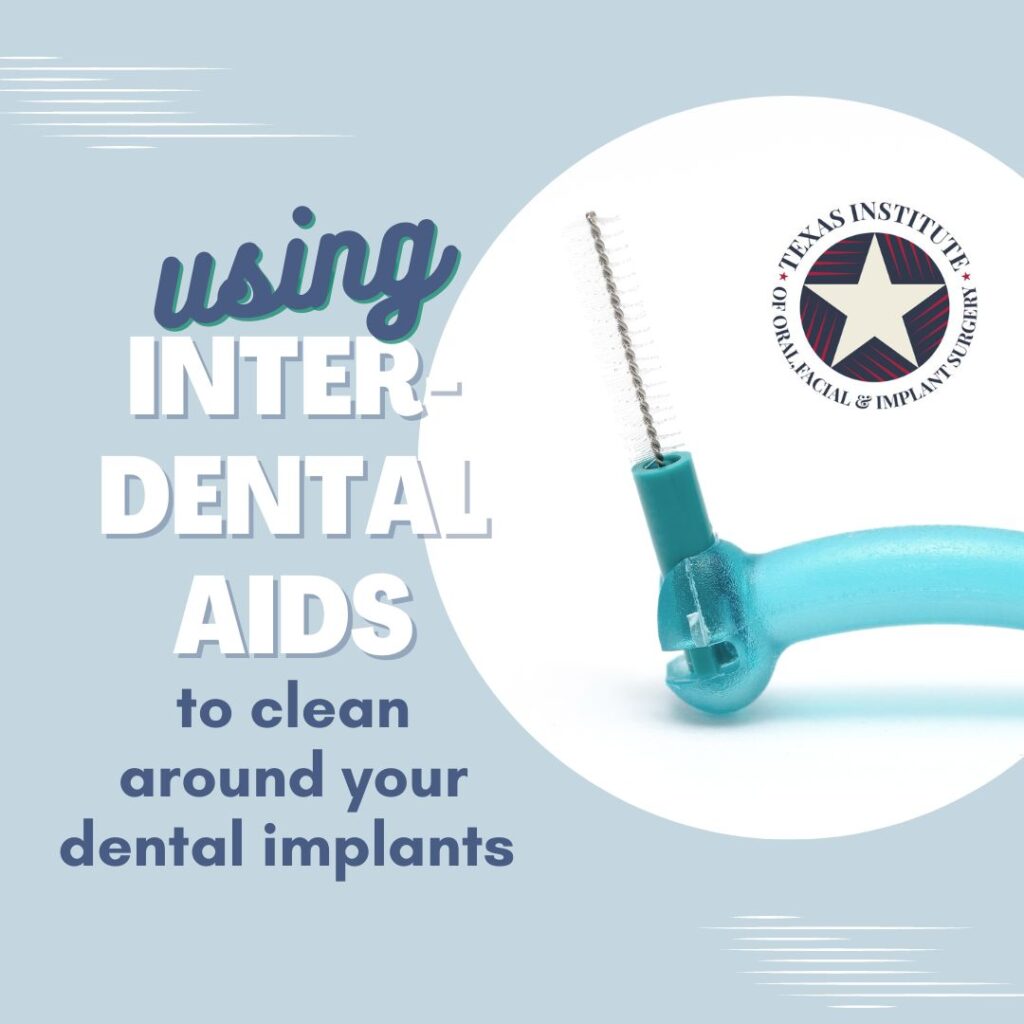
At Texas Institute of Oral, Facial & Implant Surgery, dental implants are a fantastic option to replace all of your missing teeth. But once the dental implant is surgically placed, do you know how to keep it clean? Today, we will review the top things you need to know about your oral hygiene in relation to dental implants and how to make sure your smile investment is healthy for life!
Why Keep Your Implants Clean?
When it comes to a general recommendation for keeping your dental implant clean, many dentists and dental hygienists will instruct you to treat it like you would your other natural teeth. This includes a daily brushing and flossing routine to remove plaque bacteria and food debris. That’s because plaque can accumulate around the implant and contribute to issues like peri-implantitis (the implant form of gum disease.)
However, it’s important to note that as soon as an implant is placed, there can be a waiting time before it’s safe to stimulate the gums to ensure proper healing. Make sure you review these steps before, during and after the dental implant procedure to be sure you know exactly what you should be doing and when!
Interdental Brushes
An interdental brush is exactly what it sounds like: a small brush that can go in between your teeth and dental implants! These brushes are designed to access hard to reach areas between teeth and can serve as a great interdental (between teeth) cleaning option for people with implants. Often, food debris can be left behind from traditional string floss. Interdental brushes are a great adjunct tool for your dental implant care. They’re available in a multitude of sizes, making it simple to find one that fits between your teeth or under your fixed implant prosthesis.
String Floss
We couldn’t review the best options for keeping your dental implant clean without including the classic: string floss! Most people should floss at least once a day after they’re past the initial healing phase to ensure proper plaque removal around their implants and fixed crown, bridge, or other restoration. Keep in mind that string floss may appear to go deeper than natural teeth due to the anatomy of how the dental implant abutment and crown fit together; this is normal and preferred to ensure all bacteria is removed along the gums!
Water Flosser
Water flossers are worth every penny when it comes to keeping your mouth extra clean. Water flossers use a forced stream of water to remove bacteria and debris that builds up around teeth and gums. With dental implants, water flossers can be used to dislodge food or bacteria that may be stuck around the implant itself, just like our natural teeth. Water flossers often come with different settings that enable you to turn down or turn up the water pressure. Most professionals recommend starting on the lowest setting to ensure you do not cause damage to the gum tissue around your implant.
Better Care Means Longer Results
These interdental aids are an excellent addition to your home care routine and will help ensure healthy implant for years to come! For more information on dental implants in Ellis County, call our Midlothian specialist today!



